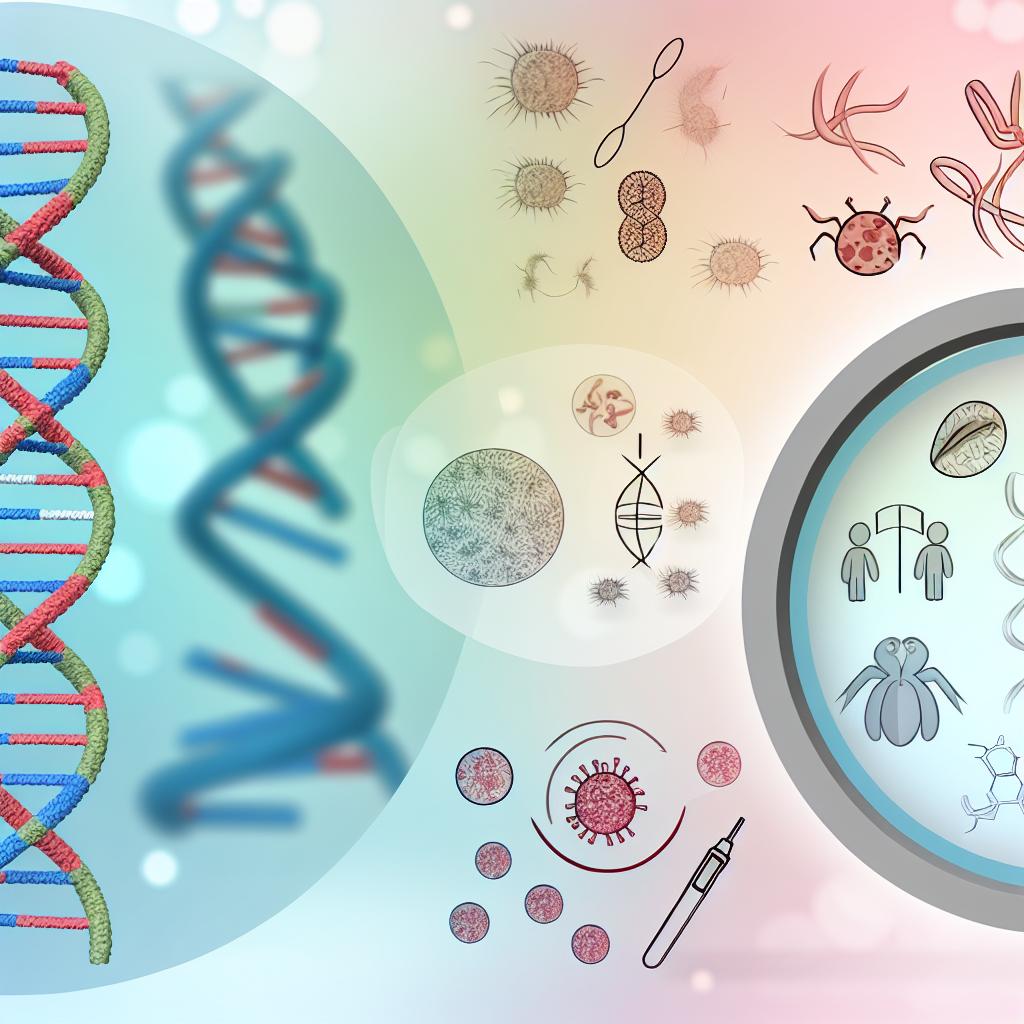DNA and Disease Susceptibility
DNA, or deoxyribonucleic acid, is universally recognized as the hereditary material present in humans and nearly all organisms. This molecule serves as a comprehensive blueprint that guides various biological processes, including the development, functioning, growth, and reproduction of cells within the body. In addition to these fundamental roles, DNA also plays a critical role in determining an individual’s susceptibility to a wide range of diseases.
Genetic Variability
Human beings are unique, with each individual possessing a distinct DNA sequence. Within these sequences are minor variations known as genetic polymorphisms. Such variations can influence how individuals respond to various environmental factors, pathogens, and medications. This response variability explains the differences in disease susceptibility observed among populations. In some cases, specific genetic differences may increase an individual’s risk of developing certain diseases, while in other cases, these differences may offer a degree of protection against them.
The Role of Single Nucleotide Polymorphisms (SNPs)
Single nucleotide polymorphisms, commonly referred to as SNPs, represent the most prevalent type of genetic variation among individuals. An SNP is characterized by a difference in a single building block of DNA. These seemingly minor differences have the potential to influence gene function significantly. Researchers have identified associations between specific SNPs and the risk of developing various conditions such as cancer, heart disease, and diabetes. Understanding these associations is crucial for identifying individuals at heightened risk and developing targeted interventions for them.
Gene-Environment Interactions
The relationship between genetic predisposition and environmental factors plays a significant role in influencing disease susceptibility. For instance, one might possess genetic variants that increase their likelihood of developing lung cancer. However, that risk becomes considerably more pronounced in the presence of external environmental factors, such as smoking. These interactions underscore the complexity of disease development, which is often not purely genetic but involves a combination of inherited predispositions and environmental exposures.
Epigenetics
Epigenetics encompasses changes in gene expression that occur without any alterations to the underlying DNA sequence. These changes can have considerable effects on an individual’s susceptibility to disease. Various environmental influences, including diet, stress, and exposure to harmful toxins, can lead to epigenetic modifications. Such modifications can either activate or repress certain genes, impacting one’s risk of developing diseases. As researchers continue to unravel the intricacies of epigenetic mechanisms, there’s hope that this knowledge will lead to innovations in disease prevention and treatment.
Genetic Testing and Predictive Medicine
In recent years, genetic testing has made significant strides, providing individuals with insight into their genetic predispositions. By identifying genetic variations associated with increased risk for particular diseases, genetic testing enables earlier interventions and the formulation of personalized treatment strategies. This shift marks a transition towards predictive and preventive medicine, where the focus is on foreseeing potential health challenges and taking proactive steps to mitigate them. This approach not only holds potential for improving individual health outcomes but also for optimizing the allocation of healthcare resources.
Challenges and Ethical Considerations
Despite the promising prospects that genetic information presents for disease prevention and management, it brings forth a range of ethical challenges. Key concerns include issues surrounding genetic privacy, the potential for discrimination based on genetic information, and the psychological impact on individuals after learning about their genetic risks. The knowledge of having a genetic predisposition to a disease can be distressing and may affect life decisions, leading to a need for ethical guidelines and robust regulatory frameworks to protect individuals from misuse of genetic information. Balancing the benefits of genetic insights with safeguarding personal rights remains an ongoing challenge in the field of genomics.
Conclusion
In conclusion, understanding the influence of DNA on disease susceptibility is pivotal for gaining insights into the mechanisms underpinning various health conditions. As research in genomics continues to advance, coupled with the development of new technologies, there is a growing potential to enhance our capabilities in predicting, preventing, and treating diseases more effectively. While this represents a remarkable frontier in medicine, it also necessitates a thoughtful approach to address the ethical and privacy issues that accompany the expanding use of genetic information. For further details about ongoing research in this field, visit the National Human Genome Research Institute, which offers a comprehensive overview of the latest discoveries and advancements in genomic research.



